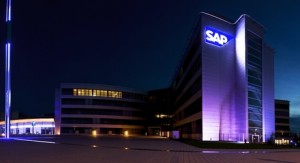
SAP and a financial analyst are at loggerheads over a recent report by the analyst, claiming that a handful of customers had received substantial discounts on their software maintenance renewals.
“We recently spent time talking with a handful of large SAP customers that have received roughly 50% discounts on maintenance renewals,” states the report by Peter Goldmacher of Cowen and Company. “The original contracts were in the $5M-$10M range.”
“All these customers were looking to reduce IT spend, they felt like SAP maintenance wasn’t good value for the money, and they were actively evaluating lower cost alternatives,” the report added, in a possible allusion to third-party maintenance vendors such as Rimini Street. “When these customers informed SAP of their intentions to cancel maintenance, SAP initially offered modest discounts, only to follow up with significantly larger discounts when the customers pushed back. Given that there was executive level engagement in these discounts, we infer that senior management at SAP is aware of the issue.”
But an SAP senior executive who oversees approval of all maintenance contracts said in an interview this week that to his knowledge, no such discounts have been given.
“I have an organisation in every geography that is dedicated to interact with customers in terms of contracts and conditions,” said SAP’s Augusto Abbarchi. “When we saw that report, we were kind of shocked. We don’t have any discount policy at SAP. We don’t know where this is coming from. We’ve always said maintenance is not a topic for discussion when it comes to price.”
However, Abbarchi did offer a number of caveats. “What I can say is, we see increasing pressure from customers in terms of reducing any kind of costs,” he said. “So of course we have a higher number of discussions with customers compared to the past [regarding maintenance fees].”
Customers in financial distress have also approached SAP, looking for a cut in maintenance. “The reaction we have is always the same, that together with the customer we analyse how our maintenance services can help them lower their costs.”
That’s what SAP’s Enterprise Support service is supposed to do. SAP angered many customers several years ago when it announced they would be migrated to the pricier service, but later made some concessions.
“I can admit that the consumption of the services inside Enterprise Support is not as high as we’d like,” Abbarchi said.
However, Abbarchi wouldn’t rule out a scenario where a customer facing serious financial woes could get a break on maintenance, if only temporarily. “I don’t want to say it’s impossible.”
But SAP would rather lose the customer than go down such a road, since it prefers to build stable long-term relationships, Abbarchi said.
Regarding Goldmacher’s report, Abbarchi suggested that perhaps the customers cited in it were talking about something other than a straight discount on maintenance.
“Maintenance is calculated on the net price of licenses,” he said. “So you can maybe discount the new licenses the customer is buying and as a matter of fact, you’re discounting the unit cost for the maintenance.”
In an email, Goldmacher said he stood by his report and that his SAP customer sources reported a “straight discount on maintenance. Period.” Goldmacher declined to name the customers or provide access to them.
SAP spokesman James Dever raised the question of whether Goldmacher has a conflict of interest, given that his firm hosted an equity investor tour for Rimini Street, which is reportedly considering an IPO.
Goldmacher dismissed the suggestion. “I don’t think I mentioned Rimini Street anywhere in my note,” he said via email. “Geez, these guys are really getting nasty.”
Dever also pointed to the fact that Goldmacher only professes to hearing from a handful of buyers, which amounts to an infinitesimal percentage of SAP’s nearly 200,000 customers.
For its part, Rimini Street claimed it too has heard that SAP is giving discounts, partly due to Rimini’s own influence.
“We have always seen some level of discounting from SAP on annual maintenance when SAP finds out that Rimini Street is competing for the business in an account,” a Rimini Street spokesman said in a statement. “However, that discounting has definitely increased as SAP grapples with real competition from Rimini Street.”
This is not the first time reports have emerged of SAP agreeing to discount maintenance. But the fervour with which the company has denied the practice is occurring speaks to how crucial maintenance revenues, which carry high profit margins, are to software vendors like SAP.
Oracle famously sued SAP after its former subsidiary TomorrowNow made illegal downloads of Oracle software and other materials in order to provide a lower-cost support option to customers. SAP admitted liability for TomorrowNow’s actions and shut down the business.
TomorrowNow co-founder Seth Ravin subsequently formed Rimini Street, where he serves as CEO. Oracle has also sued Rimini Street on similar allegations, with that case yet to go to trial. Rimini Street has maintained its innocence.
In any event, all software vendors are facing threats to maintenance revenues, and from a variety of forces, said analyst Ray Wang, CEO of Constellation Research.
First, the option of going to a third-party maintenance provider allows customers to have a conversation about the cost of support with their vendor, he said.
In addition, “these customers have a lot of shelfware,” he said. That means in negotiations, customers can seek to “park” old and unused licenses, taking them off maintenance, or trade them for newer functionality, Wang said.
Thirdly, a recent court ruling in Europe found that used software licenses can be resold, Wang noted. “There is downward pressure to bring the cost of software down,” he said. “It’s not just an SAP problem.”




